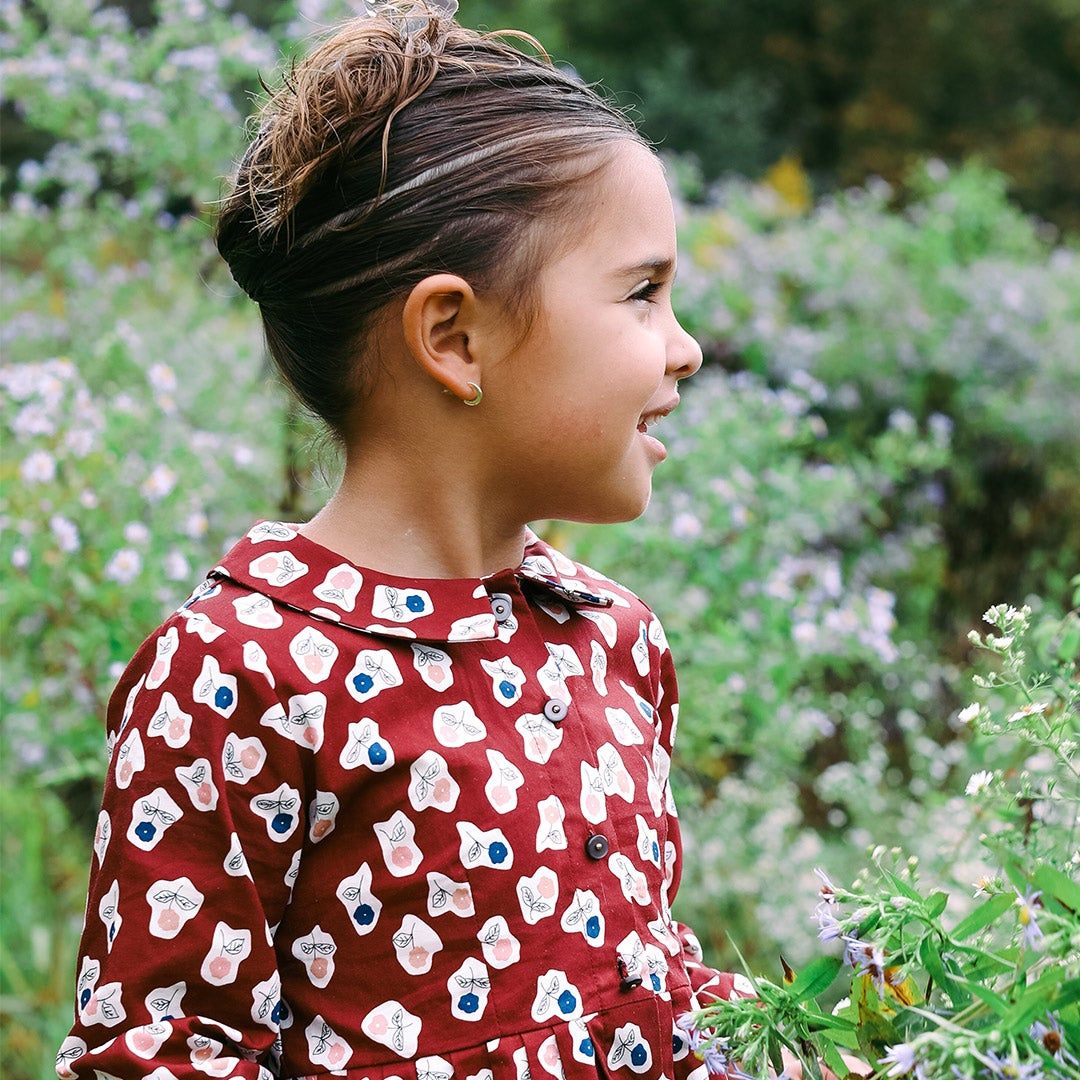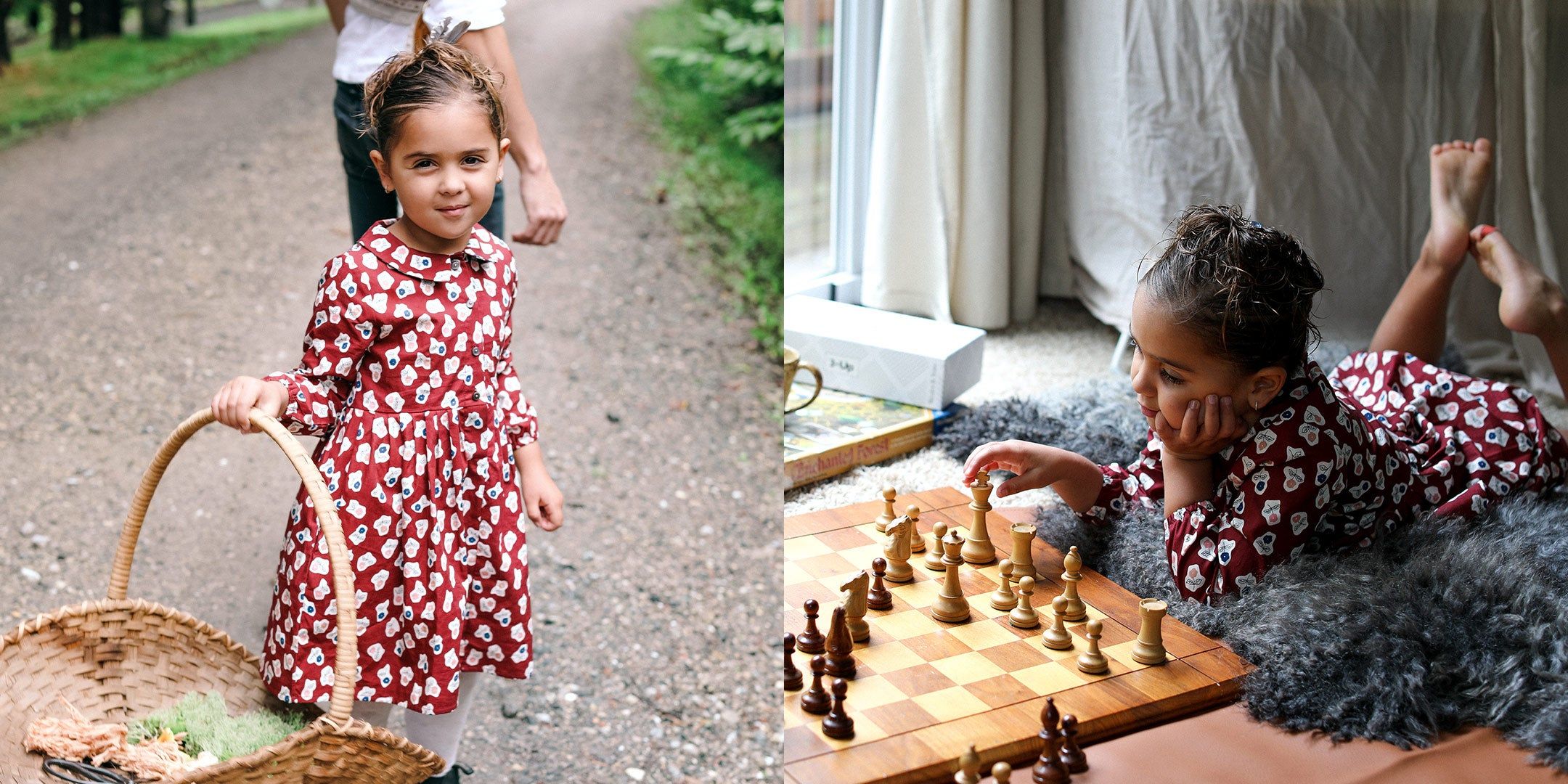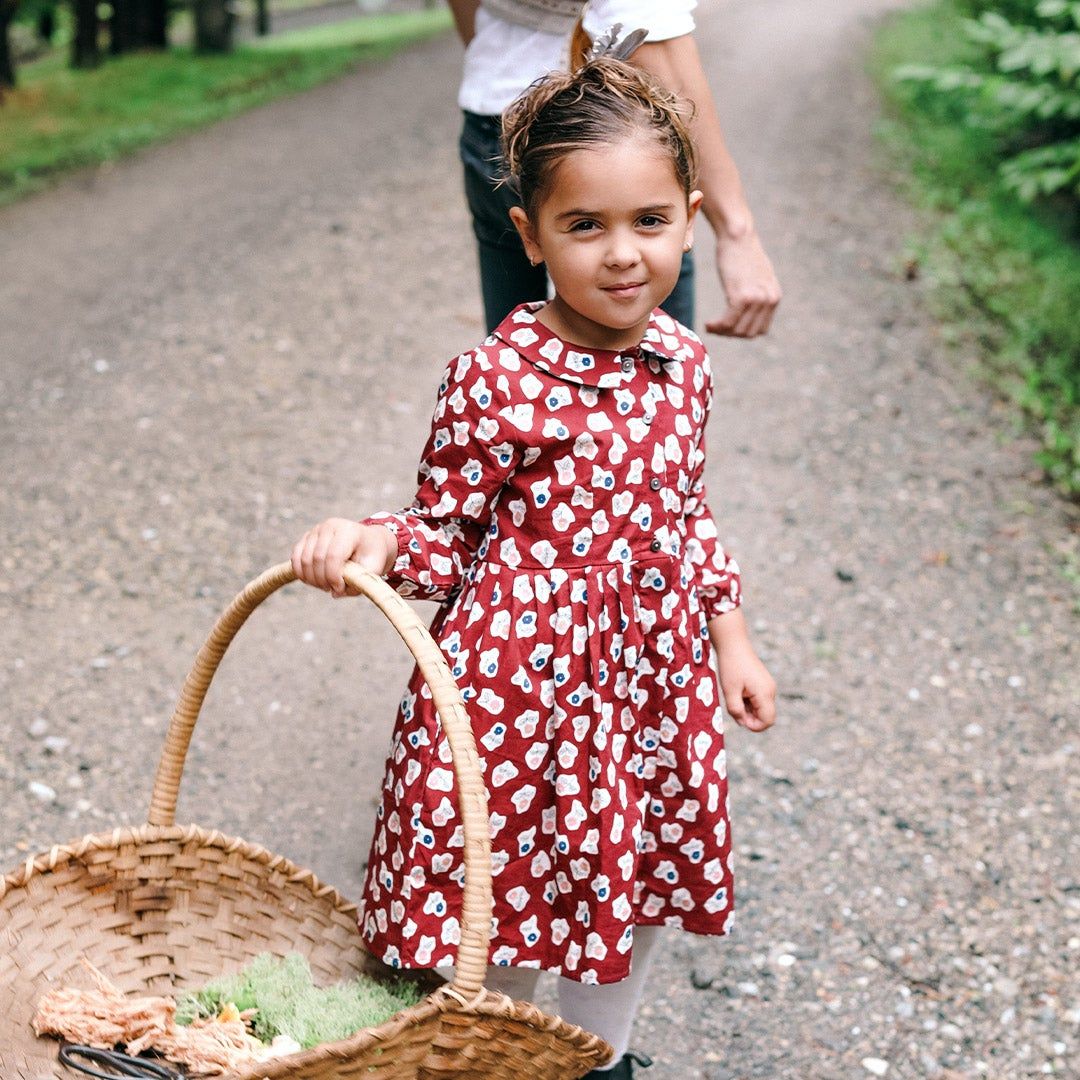
Beyond the Classroom
Bela Fishbeyn
You have a four-year old and a newborn. What does a day-in-the-life —homeschooling and all— look like for your family?
It’s very tempting to lean into traditional schooling as a model for homeschooling and simply recreate the classroom setting at home through lessons, workbooks, and timed classes. When we’re on top of things, our efforts usually go toward resisting this pull.
Of course, we still work on a lot of the same things with Escher, our oldest, that her peers are working on. Every morning during breakfast and before bed she reads every other page of a book with us — right now we’re enjoying The Hobbit. After reading, we usually take some time to work on numbers and logic. Counting money has been fundamental for now.
Our goal with both of these is to give Escher more control over her life. Through reading, she can drive more of her own education. As she understands more about money and arithmetic, she can begin to lead more projects of her own.
Outside of a couple of hours of “deep work” in the morning, we think the best learning happens in a social setting, so we run around at the park or in the woods, we play lots of board games together as a family, we make-believe and sing, and we talk all the time.
You recently lost your home in the wild fires just days after your second daughter was born and shared about it so beautifully. Can you say more about what you learned from that experience and what you hope to pass on to your daughters?
Above all, I hope that we pass on a love for family to our daughters. Even now it’s hard to think about our house burning down. But never have we appreciated our children as much as when the house had been destroyed. Not just because of the love that we have for them – it’s much more practical. Our children never gave us the opportunity to self-indulge. We did not get to throw a pity party for ourselves. Escher and Rumi don’t live in the past. They don’t sit around and think about what could have been. Every day, they needed us to be there with them, in the present, not moping around feeling sorry for ourselves.
To keep up with them, we had to pick ourselves up and start the recovery right away. They’ll never know how grateful we were for them and their characters at that time, but I truly hope that they get to experience the joy and meaning that comes from sharing your life with children. At the very least, I hope we all get to share in the love of our family.
You also bought a home in the North Carolina mountains! How will you incorporate nature and your surroundings into homeschool?
Our new home is surrounded by forests and one of our favorite activities is walking along the paths with a flat basket to collect natural treasures. We find mosses, lichens, mushrooms, berries, branches, barks, wasp nests, cocoons, insects, and of course lots and lots of wildflowers, then we bring them home and preserve them. Once they are dried out, we use them to do “nature compositions” and decorate the house. Sometimes they’re hanging from the walls or in vases or in platters, and soon we’ll design an entire accent wall. It’s the perfect way for us all to get dirty together while creating something beautiful.


What is the most important thing you try to teach your daughters?
This is a very hard question – it’s difficult to hone in on a single thing in the network of life! Maybe an understanding of ‘happiness,’ but not in the narrow sense. More like flourishing or eudemonia or whatever term is in vogue right now.
It’s some mixture of shaping our feelings through good habits so that they guide us towards the things that actually are good for us. It takes skepticism and belief, independence and commitment to others, analysis and creativity, presence and planning. Above all, it takes an attitude that you can do something about your own life. You have to take your emotions into your own hands and cultivate them so that eventually you spend every day doing exactly what you wish you were doing.
It’s a lifelong and imperfect process, but I cannot possibly imagine a more important goal to teach our daughters.
You’ve lived in a van, a tiny house, and love to travel. How do you hope those experiences will enrich your daughters’ understanding of the world?
I hope that our daughters never lack a sense of possibility. They live in a staggeringly complicated time, which can be incredibly overwhelming. So overwhelming that it can hardly seem worth doing anything at all, since someone has already done it before you. But there’s an experience of being on your own, and out of your comfort zone, that accompanies traveling. You do not know what will happen next. Many times, it isn’t good, but that doesn’t change anything. When you’re traveling, you can’t quit. You have to make whatever happens work. You have to finish what you started, even if that’s just finding your way home.
I think that attitude has kept us going on a lot of days when maybe we’d rather quit. When life is so hard and you just can’t see how you’re going to find home again. I have no idea if our daughters will learn this sort of resilience from their time with us, or by going out and striving for themselves, but I think that they will have to learn it somewhere if they want to live a creative life
What is the best part of your day?
Truly, the best part of our day is when both of our daughters are in bed and we get to relax together for the rest of the evening. We talk about absolutely everything and reflect on the wonder of our lives. These few hours have been our foundation for the past ten years and I hope they remain so for many, many more.